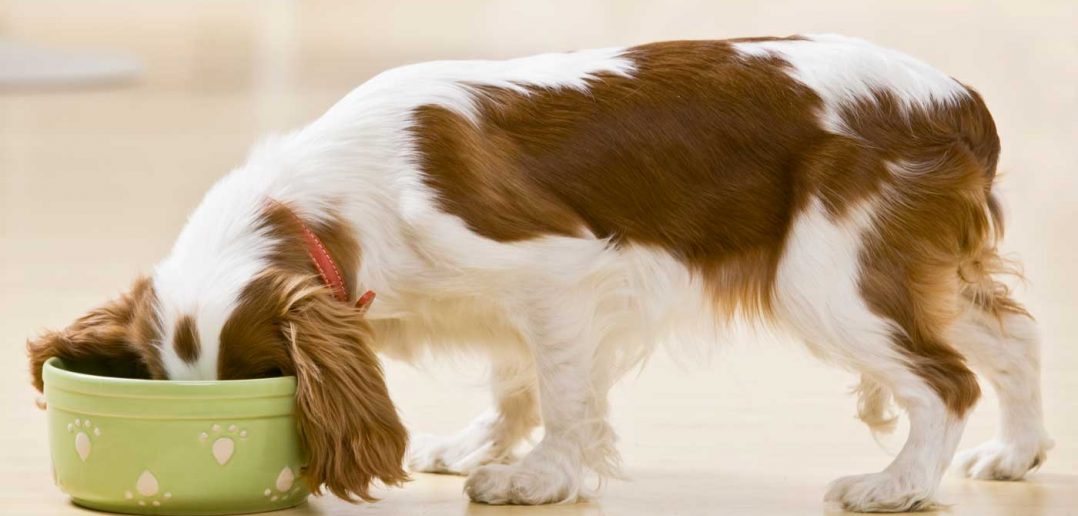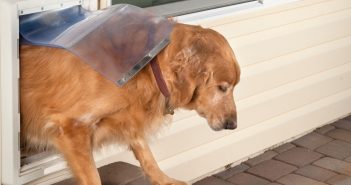If your pup always races to the plate to devour their meal, you should consider ways to slow them down. It’s a risky habit you’ll want to curb, and the reasons at the root of their speed-eating warrant a closer look.
Common Reasons Dogs Speed-Eat
If your dog is racing through meals, determining the reason will help you thwart the mealtime madness. Here are a few tips for making mealtime less stressful for pups based on some of the common reasons they may be eating their food way too quickly.
Puppyhood Habits
One possibility is linked to their experience as a puppy. Sometimes dogs don’t outgrow the habits they formed at an early age, like competing with littermates for the next meal. It’s a survival instinct that stuck. If this is the case, your pup may have anxiety around mealtime. They may show aggressive behavior towards other dogs who approach their bowl and even the humans who feed them.
Here are a few tips for making mealtime less stressful for these pups:
Positive Reinforcement: Try feeding them a little food by hand. Then put a few pieces of kibble or even a treat in their bowl. This can help them understand that someone walking up to their bowl is not a bad thing and that no one is going to take the food away.
Safe Spaces: If your pup has competition in the house, try feeding everyone separately. This can help alleviate the anxiety around eating and their fear of going hungry.
Internal Issues
Another possibility is that internal issues are at the root of the problem. Diseases like diabetes mellitus, hyperthyroidism, and Cushing’s, as well as certain medications and intestinal parasites, can increase your dog’s appetite, causing them to speed-eat. You’ll want to work with your veterinarian to rule out all health-related issues.
Insufficient Nutrients
There’s also a chance their meals are not providing the nutrition they need. This can leave your dog feeling unsatisfied and even obsessed with their next meal. Because every dog has unique nutritional requirements based on age, breed, size, activity levels, and health, it’s helpful to get recommendations from your vet. You can take the guesswork out by ordering personalized dog food through a dog food delivery service. Many offer healthy dog food formulated by pet nutritionists to support your pup’s unique dietary needs.
Innate Talents
Lastly, there is the possibility that your buddy simply lacks grace. Some dogs are just born that way. While puppy etiquette isn’t really a concern, their safety is.
Problems Associated with Dogs Who Eat Too Fast
When dogs speed-eat, they swallow air along with barely chewed food. This is a problem for a few reasons.
- Unchewed food can get stuck in their air passage, causing your dog to choke. (How to Help a Choking Dog)
- Food and excess air can expand in the stomach prompting your pup to vomit to alleviate the discomfort. If this happens on a regular basis, the acids can harm the lining of the esophagus over time.
- Kibble is designed to remove plaque; if they are swallowing it whole, they miss the benefits.
- If your dog drinks too much water (too fast) during or after playtime, it can result in excessively-low blood sodium levels.
- They run the risk of developing GDV or bloat, which is a condition where the stomach expands, then twists (volvulus), and potentially ruptures. It’s life-threatening and requires immediate emergency care; dogs can go into shock.
Signs of an GDV Emergency Situation: If you see any excessive drooling, lethargy, rapid pulse, sudden refusal to eat, restlessness, retching, or swollen abdomen you should get your pup to a vet immediately—even if it’s after hours. Bloat is a life-threatening condition that can not wait for treatment.
Slowing Your Dog Down at Mealtime
Whatever the reason for your pup’s speed-eating, there are some easy tricks to slowing them down.
Brain Games: There are plenty of puzzle toys that require your pup to use their brain to get to the kibble. While your dog is rolling, sliding, and manipulating these gizmos to reach their food, they’re not only eating slower but having fun while problem-solving.
Hide and Seek: Hide their food in different locations in the house or even the yard. Your dog will get to “hunt” for their food. For them, it’s extra playtime and exercise too, all while slowing down their eating.
Slow Feeders: There are bowls, called slow feeders, designed to slow down speed-eaters. But if you’d rather DIY, use a bundt pan or put a tennis ball in a regular-size bowl. Either of these options forces your dog to slow down by negotiating around obstacles to reach the food.
Every dog is unique; your pup will likely respond better to one approach over the others. Whether turning mealtime into playtime or helping them relax with a little love and a big bowl of healthy dog food or slowing them, your efforts will lead to a healthier life.




